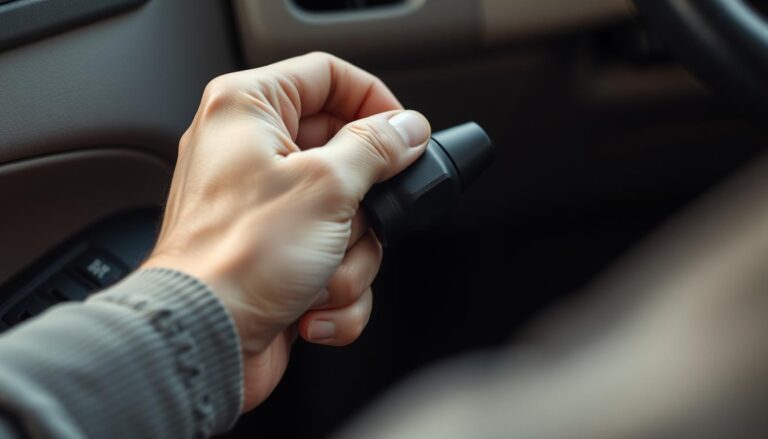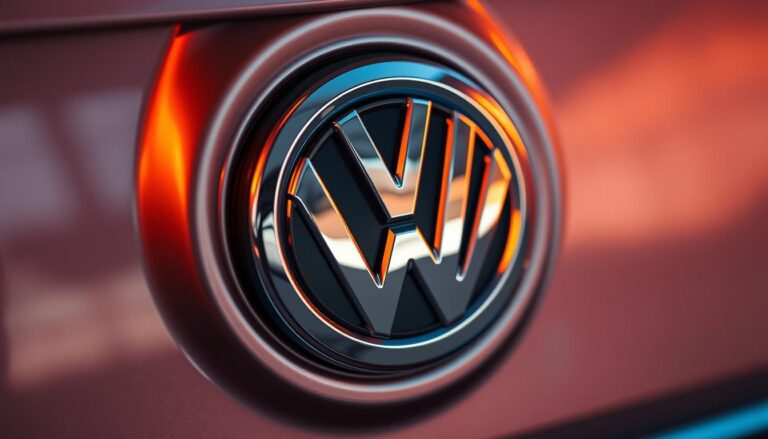The process of replacing a BMW starter can incur substantial financial burdens for vehicle proprietors. The cost of this replacement is contingent upon several variables, including the model of the vehicle, labor expenses, and the type of starter employed.
Grasping the factors that dictate the overall replacement cost is paramount for effective budgeting and decision-making. This discourse aims to elucidate the pivotal elements influencing the cost of replacing a BMW starter, offering a detailed synopsis for the reader’s benefit.
Key Takeaways
- Factors influencing BMW starter replacement cost
- Average cost range for replacing a BMW starter
- Importance of labor costs in the overall expense
- Options for reducing the replacement cost
- Considerations for choosing the right starter
Understanding BMW Starters and Their Function
The starter motor is a pivotal component within your BMW, tasked with initiating the engine’s operation. Its role is indispensable to the vehicle’s performance, necessitating a comprehensive understanding of its function for effective diagnosis and resolution of potential issues.
What is a Starter Motor and How Does it Work?
A starter motor, an electric motor, is responsible for turning the engine over upon key turn or ignition button press. It collaborates with the battery and ignition system to deliver the requisite power for engine startup. The starter motor engages with the engine’s flywheel, rotating it until the engine self-sustains its operation.

Why BMW Starters Are Different from Other Vehicles
BMW starters exhibit distinct characteristics, differing from those in other vehicles. These distinctions often stem from the high-performance demands of BMW engines, necessitating starters capable of withstanding elevated torque and stress. Modern BMW models, incorporating advanced technology such as start-stop systems, require specialized starter motors adept at managing frequent starts and stops.
BMW Starter Replacement Cost Breakdown
An in-depth understanding of the various cost components involved in BMW starter replacement is imperative for effective financial planning. The total expenditure is influenced by several variables, including the specific BMW model, labor costs, and the necessity for additional services.
Parts Cost for Different BMW Models
The cost of a replacement starter motor exhibits considerable variability across different BMW models. For example, luxury models or those equipped with advanced technology may necessitate the use of more expensive starters.
Below is a general breakdown of parts costs for various BMW models:
| BMW Model | Approximate Parts Cost |
|---|---|
| 3 Series | $250-$400 |
| 5 Series | $300-$500 |
| 7 Series | $400-$600 |
| X5 | $350-$550 |
Labor Costs at Dealerships vs. Independent Shops
Labor costs exhibit significant disparity based on the choice between a dealership and an independent repair shop. Dealerships typically charge higher labor rates due to their specialized training and advanced equipment.
For instance, a dealership might charge between $150-$250 per hour, whereas an independent shop might charge between $75-$150 per hour.
“Selecting an independent shop can substantially reduce labor costs, provided they possess experience with BMW models.”
Additional Fees to Consider
Additional fees may arise beyond parts and labor, such as diagnostic fees or costs for the disposal of the old starter.
These supplementary expenses can accumulate, necessitating their inclusion in your overall budgetary considerations.

Factors Affecting BMW Starter Replacement Expenses
The expense of replacing a BMW starter is subject to numerous variables. Grasping these elements enables BMW proprietors to forecast and possibly lessen the costs linked to starter substitution.
Model-Specific Considerations
BMW models exhibit disparate necessities for starter replacement. For example, the 3 Series, 5 Series, and 7 Series, alongside X Models, incur differing labor expenditures and component prices. This disparity stems from design and accessibility variations.
| BMW Model | Average Parts Cost | Average Labor Cost |
|---|---|---|
| 3 Series | $250-$350 | $150-$250 |
| 5 Series | $300-$400 | $200-$300 |
| 7 Series | $350-$450 | $250-$350 |
| X Models | $300-$500 | $200-$400 |
Age and Accessibility Issues
The age of the BMW and the starter motor’s accessibility are pivotal factors influencing replacement costs. Older models often necessitate more labor due to potential complexities. In contrast, newer models may boast more accessible starter motors, thus reducing labor expenses.
Age-related considerations: Older BMWs frequently present more intricate systems or harder-to-access starter motors, elevating labor time.
Geographical Price Variations Across the US
Geographical location within the US significantly impacts BMW starter replacement costs. Urban locales typically exhibit higher labor rates than rural areas, influencing the overall expense.
Regional labor rates: Dealerships and independent mechanics across various regions may set different rates, affecting the total expenditure.
Signs Your BMW Starter Needs Replacement
Identifying the indicators of a failing BMW starter is paramount to averting unforeseen breakdowns. A malfunctioning starter motor can precipitate a scenario where one finds themselves stranded, necessitating an immediate understanding of the warning signs for timely intervention.
Warning Symptoms You Shouldn’t Ignore
Several indicators can signal that your BMW starter is malfunctioning. These include:
- A clicking sound when you turn the key, but the engine doesn’t start.
- A grinding noise during startup, which could indicate worn starter gears.
- The engine cranks slowly or hesitantly, suggesting a weak starter motor.
- Intermittent starting issues, where the car starts sometimes but not others.
- A burning smell or smoke coming from the starter area.
These symptoms can be early warnings of a faulty BMW starter. If you notice any of these signs, it’s essential to have your vehicle inspected by a professional mechanic.
Distinguishing Starter Problems from Other Issues
Diagnosing BMW starter problems necessitates distinguishing between starter issues and other potential causes of starting difficulties. Other components, such as the battery, ignition switch, or fuel pump, can also cause starting problems.
To accurately diagnose a starter issue, look for the following:
- If the dashboard lights and accessories work properly, but the engine doesn’t crank, it could indicate a starter problem.
- A clicking sound without engine crank suggests a faulty starter solenoid or motor.
- If the starter motor engages but doesn’t turn the engine over, it may be a sign of a worn or damaged starter.
Understanding these signs and being able to distinguish between starter problems and other issues can help BMW owners address problems promptly and avoid unnecessary repairs.
DIY vs. Professional BMW Starter Replacement
The task of replacing a BMW starter can be daunting, prompting many owners to ponder whether to undertake it themselves or seek professional assistance. This decision hinges on various factors, including one’s technical proficiency, the availability of appropriate tools, and the potential risks associated with the endeavor.
Replacement Process Overview
The process entails disconnecting the battery, removing the starter motor mounting bolts, and disconnecting electrical connectors. It is imperative to consult the vehicle’s repair manual for precise instructions to ensure a successful replacement.
Tools and Technical Skills
DIY replacement necessitates a set of specialized tools, including a socket set and a multimeter. Beyond the tools, one must possess technical skills such as electrical knowledge and mechanical aptitude to navigate the process effectively.
Potential Complications and Risks
Potential complications include damaging electrical components or stripping mounting bolts. Personal safety hazards also arise if proper precautions are not taken during the replacement process.
| Aspect | DIY Replacement | Professional Replacement |
|---|---|---|
| Cost | Parts cost only | Labor cost + parts |
| Technical Skills | Required | Not required |
| Risks | Higher personal risk | Warranty on work |
The choice between DIY and professional BMW starter replacement ultimately rests on the individual’s comfort level with the process and the potential risks involved.
Conclusion
The process of replacing a BMW starter can incur substantial costs, with the average expense for a BMW 528i Car Starter Repair estimated at $317. This figure is comprised of $177 for parts and $140 for labor. It is imperative to recognize that these costs can fluctuate based on geographical location and the precise model of your vehicle.
Addressing starter malfunctions with alacrity is critical to prevent being left stranded. Prior to initiating the replacement of the starter, a diagnostic test must be conducted to ascertain that the issue is, in fact, with the starter and not another component. For a more detailed breakdown of costs and to gain a comprehensive understanding of the expenses involved, refer to YourMechanic.
Being well-informed about the costs associated with BMW starter replacement and the variables that affect these costs is crucial. This knowledge empowers you to make informed decisions regarding your vehicle’s maintenance. Typically, a 12-month/12,000-mile warranty is offered for the service, providing reassurance and peace of mind.
FAQ
How much does it cost to replace a BMW starter?
The expense of replacing a BMW starter is influenced by several variables, including the model, labor costs, and other considerations. Generally, the cost can fluctuate between 0 and 0, reflecting the complexity of the task.
What are the signs that my BMW starter needs replacement?
Indicators that your BMW starter necessitates replacement include audible clicking or grinding sounds when attempting to start the engine, a slow or labored start, or an inability to start the engine altogether.
Can I replace my BMW starter myself?
While it is feasible to undertake the replacement of a BMW starter independently, it is advisable to seek professional assistance. The intricacy of the procedure and the potential for damage to other components render DIY efforts risky.
How long does it take to replace a BMW starter?
The duration required to replace a BMW starter can vary significantly, contingent upon the model and the mechanic’s expertise. Typically, the process spans between 1-2 hours, reflecting the complexity of the task.
Are there any additional costs associated with replacing a BMW starter?
Yes, additional expenditures may arise, encompassing labor costs, diagnostic fees, and any supplementary repairs, such as the replacement of the battery or flywheel.
Do different BMW models have different starter replacement costs?
Yes, the cost of replacing a starter varies across different BMW models, such as the 3 Series, 5 Series, or X5. This disparity is attributed to differences in parts and labor requirements.
Can a faulty starter cause other problems with my BMW?
A malfunctioning starter can strain the battery, electrical system, or engine, leading to additional complications. Prompt resolution of the issue is crucial to prevent further damage.
How can I prevent my BMW starter from failing prematurely?
Preventive measures, such as regular inspections of the battery and electrical system, can mitigate the risk of premature starter failure.


